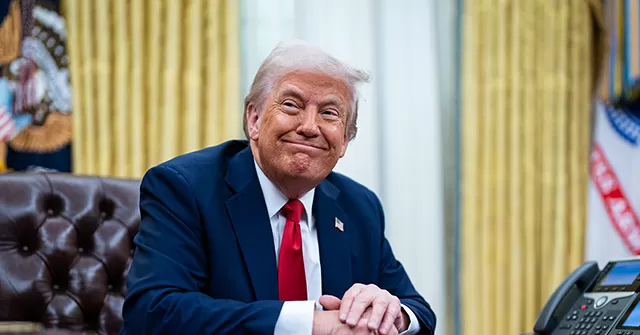Uncertainty is often seen as a negative force in the world of economics. It can cause businesses to hesitate in their investments, consumers to hold back on spending, and overall economic growth to slow down. However, in the case of President Trump’s “Liberation Day” tariffs, uncertainty may actually be the key to unlocking a much-needed economic boom for the United States.
For years, the free trade consensus has dominated economic policy in the US. The belief that open borders and free trade agreements would lead to increased competition, lower prices, and overall economic growth has been the driving force behind many trade deals. However, this consensus has also left the US economy in a state of low investment and high dependence on other countries.
President Trump’s decision to impose tariffs on imported goods from China, Mexico, and other countries has caused uncertainty in the market. Many fear that these tariffs will lead to a trade war and ultimately harm the US economy. However, this uncertainty may be exactly what the US economy needs to break out of its current state and reach new heights.
The “Liberation Day” tariffs, which were announced on July 4th, are aimed at reducing the US trade deficit and bringing back jobs to American soil. By imposing tariffs on imported goods, the Trump administration hopes to encourage businesses to invest in domestic production and create more jobs for American workers. This move has already shown promising results, with several companies announcing plans to move their production back to the US.
One of the main reasons why the US economy has been stuck in a low-investment, high-dependence trap is due to the cheap labor and production costs in other countries. This has led to a decline in domestic production and a heavy reliance on imports. However, with the uncertainty caused by the tariffs, businesses are now forced to re-evaluate their production strategies and consider investing in domestic production. This will not only create more jobs but also boost the US economy as a whole.
Moreover, the tariffs have also sparked a sense of patriotism among American consumers. With the focus on buying American-made products, consumers are now more willing to support domestic businesses and contribute to the growth of the US economy. This shift in consumer behavior can have a significant impact on the economy, as consumer spending accounts for a large portion of the US GDP.
Despite the initial uncertainty and fear surrounding the tariffs, the US economy has shown resilience and has continued to grow. In fact, according to the latest economic data, the US economy is on track to reach a 3% growth rate for the first time in over a decade. This is a clear indication that the tariffs are not causing a recession, as some critics predicted, but rather a much-needed economic boom.
In addition to the positive impact on the US economy, the tariffs have also brought attention to the issue of fair trade. For too long, the US has been at a disadvantage in trade deals, with other countries taking advantage of the free trade consensus. The tariffs have forced these countries to re-evaluate their trade policies and negotiate fairer deals with the US. This will not only benefit the US economy but also level the playing field for American businesses.
In conclusion, while uncertainty is often seen as a negative force in economics, President Trump’s “Liberation Day” tariffs may be the key to unlocking a much-needed economic boom for the US. By encouraging domestic production, creating more jobs, and promoting fair trade, these tariffs have the potential to break the US out of its low-investment, high-dependence trap and lead to a stronger and more self-sufficient economy. So let us embrace this uncertainty and look forward to a brighter future for the US economy.










